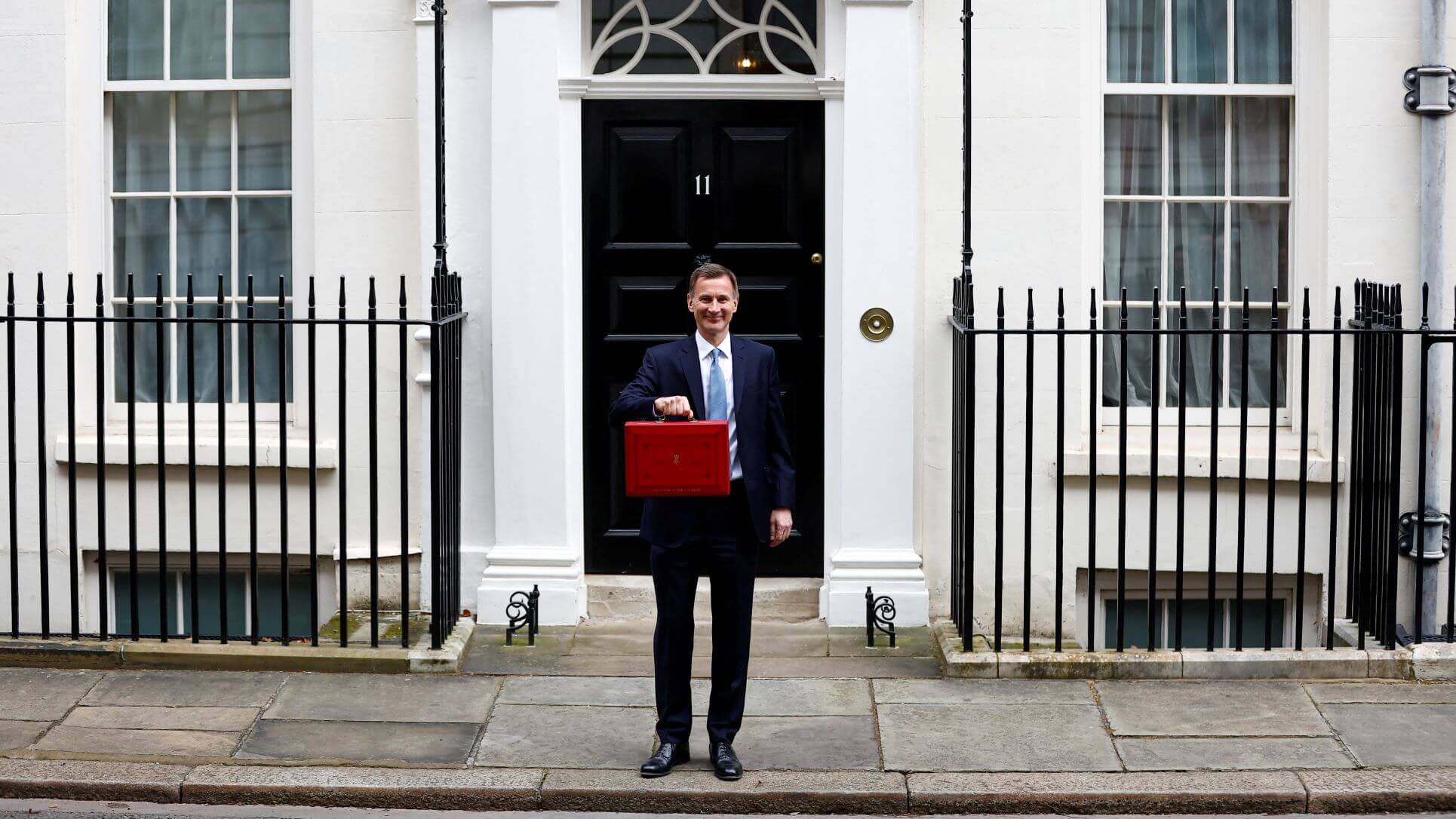The Likely Winners And Losers From The UK Budget
Tax cuts and housing stimulus are expected.

Britain's Spring budget is due next Wednesday ahead of an election expected this year, and investors are keen to see if finance minister Jeremy Hunt can balance giveaways and growth schemes with high public debt and above-target inflation.
Tax cuts and housing stimulus are expected, although too much largesse could prompt bond investors to sell UK government bonds and fuel inflation fears, making it tough for the Bank of England to cut interest rates from 16-year highs.
Here are some potential market winners and losers from the March 6 budget.
STERLING BOOST?
With the UK economy stagnating, Britain's pound could rally on growth initiatives but it remains vulnerable to fears of government over-spending, analysts said.
Hunt, keen to be viewed as fiscally prudent after his predecessor Kwasi Kwarteng and former premier Liz Truss' under-funded 2022 "mini-budget" sparked market mayhem, is also under pressure to cut income tax.
Other measures industry has urged Hunt to consider include reducing taxes on electric cars, freezing fuel duties and extending business rates relief for retail and leisure firms.
A generous budget could be seen as inflationary, said Peter Doherty, investment director at private bank Arbuthnot Latham, "pushing back rate cut hopes" and "drive a little bit more resilience in the pound."
Sterling is one of the best-performing major currencies against the dollar in the last year, with a 5% gain, mostly because BoE rate cuts are expected to lag other central banks.
It may not be rate forecasts that entirely drive sterling on the day, however.
The Institute for Fiscal Studies, a think tank, warned that any promises to pay for tax cuts now with "unspecified future spending cuts," would damage the government's credibility, potentially hurting UK assets including sterling.
GILTS EDGY
UK public debt is near 100% of national income and Wednesday's borrowing forecasts are expected to confirm predictions for a new wave of bond sales.
Deutsche Bank expects gilt sales of 271 billion pounds ($340 billion) in the financial year starting in April, up from around 237 billion pounds in the current year.
"There's a vast amount of supply," said NatWest Markets chief UK economist Ross Walker, "and it will remain substantial over the medium term."
Gilts sold off after the last budget in November as bond-sale plans came in considerably higher than expected.
The IFS forecasts private sector holdings of UK debt will rise by the most on record in 2024-2025, to almost 8% of national income.
A large chunk of gilts will mature and need replacing this year, just as the BoE is selling bonds from its emergency purchase schemes back to the market.
UK 10-year gilt yields, which move inversely to prices, are up 70 basis points (bps) this year to 4.25%. U.S. and German yields have risen roughly 45 bps each.
Jason Simpson, senior fixed income strategist at State Street's SPDR ETF business, said investors are "broadly neutral on gilts" ahead of the budget, making the risk of a bond sell-off lower than if money managers had already loaded up on UK debt.
STOCKS: PROPERTY TO PUBS
UK stocks are underperforming, with the blue-chip FTSE 100 index 5.5% below last year's peak. European equities just smashed record highs.
Just over $36 billion flowed out of UK equity funds in 2023, the most since at least 2008, Morningstar data shows.
Asset managers hope Hunt can help increase investment in UK equities, which domestic pension funds have largely sold out of over the last decade.
A housing shortage meanwhile has stoked speculation about budget policies to help first time buyers and buy-to-let landlords.
So housebuilder shares, up 50% since October, could see some weakness if plans to reinvigorate the sluggish property market are light, RBC Capital Markets' head of European housing and building materials Anthony Codling said.
Chris Sanger, tax policy lead at EY, added that any policies that support the housing market "could be helpful" for UK banks.
Tobacco companies such as British American Tobacco and Imperial Brands are also in focus amid speculation of a tax on vapes.
Any share impact should be minimal, with the potential added tax already priced in, said Susannah Streeter, head of money and markets at Hargreaves Lansdown.
Also watch the hospitality sector, Streeter added, since any cut in alcohol duties would help the likes of pub group JD Wetherspoons.
(Reporting by Naomi Rovnick, Harry Robertson and Lucy Raitano; Writing by Naomi Rovnick; Editing by Dhara Ranasinghe and Hugh Lawson)
Thanks for signing up to Minutehack alerts.
Brilliant editorials heading your way soon.
Okay, Thanks!

